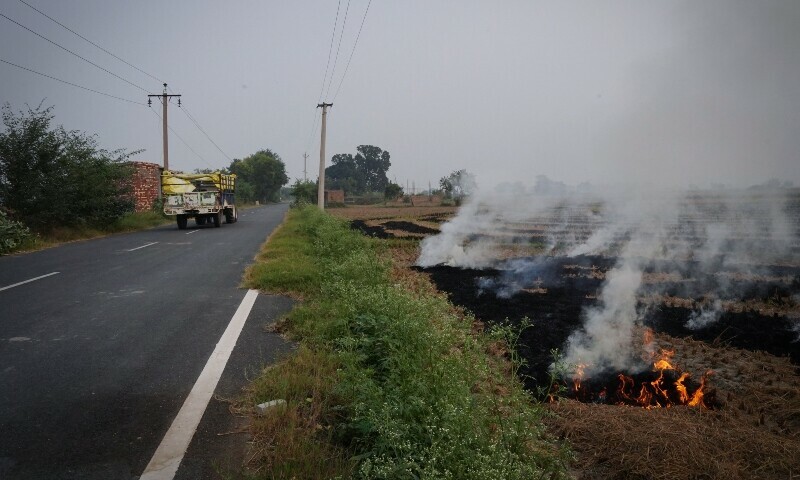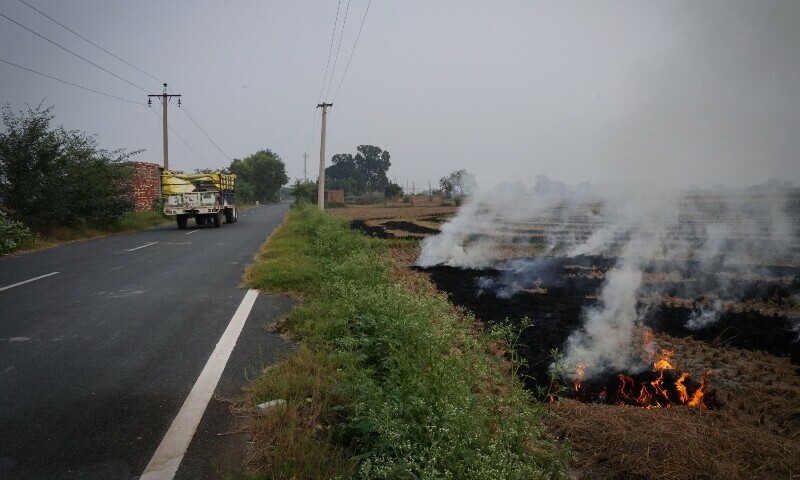
[ad_1]

At least 16 farmers have been arrested in India’s northern state of Haryana for illegally burning paddy stubble to clear fields, a practice that stokes air pollution in the region around New Delhi at the onset of winter, authorities said on Tuesday.
Meanwhile, at least 182 complaints have been registered and 71 people arrested for burning stubble and trash, operating prohibited brick-kilns and driving smoke-emitting vehicles, Punjab police said.
“Resources have also been allocated for artificial rain and other measures,” said senior Punjab minister Marriyum Aurangzeb, adding each instance of artificial rain will cost between Rs5 million and Rs7m.
The New Delhi region battles pollution each year as temperatures fall and cold air traps construction dust, vehicle emissions and smoke, much of which officials say travels from the neighbouring breadbasket states of Punjab and Haryana.
Delhi recorded “very poor” air on Tuesday morning, according to the Central Pollution Control Board (CPCB), with an air quality index (AQI) of 320.
An AQI of 0-50 is considered good while anything between 400-500 poses health dangers.
It was the second-most polluted city in the world on Tuesday, a live ranking by IQAir indicated, after only Lahore, where Punjab Chief Minister Maryam Nawaz earlier urged “climate diplomacy” with India to combat smog.
Police in Haryana’s Kaithal region told Reuters that 22 complaints of stubble burning have been registered this year, and 16 people have been arrested.
Birbhan, a deputy superintendent of police, who uses only one name, said those arrested had been released on bail.
Investigations have been launched against almost 100 farmers across Haryana, while fines have been imposed on more than 300, local media reported.
India’s environment ministry said Delhi’s air quality was likely to stay in the ‘Very Poor’ category (300-400) in the coming days due to unfavourable meteorological and climatic conditions.
To curb Delhi’s pollution, authorities have ordered water sprinkling on roads to tackle dust, increasing public bus and metro services and higher parking fees to discourage car use.
Environmentalists say the measures are inadequate.
“These are only emergency measures […] This air pollution mitigation needs a long-term comprehensive solution rather than these ad hoc measures,” said environmentalist Vimlendu Jha.
[ad_2]
Source link






